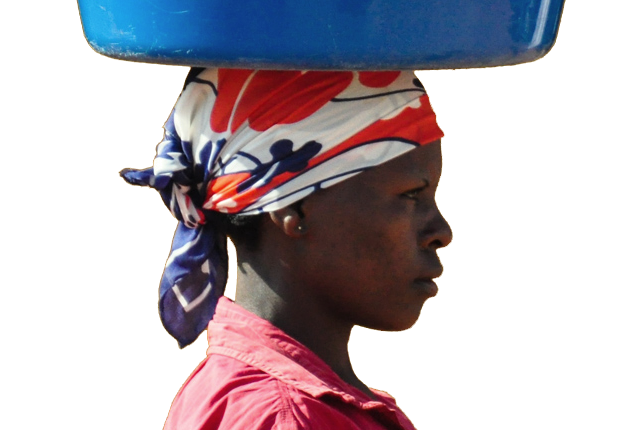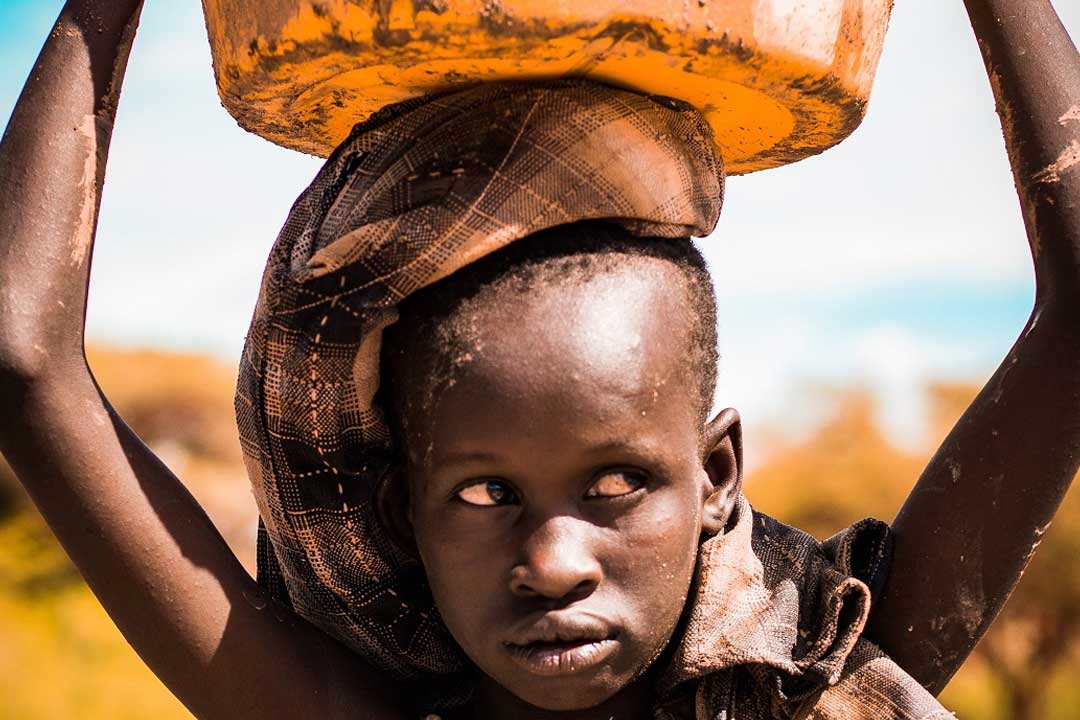
Platform for Labour Action (PLA) is a National Civil Society Organization that was founded in the year 2000. PLA is focused on promoting and protecting the rights of vulnerable and marginalized workers through empowerment of communities and individuals in Uganda.
21,463
Lives impacted
22
years of service
Our impact; stories of change

- Details
- Category: Blog
As the world prepares to commemorate the International Labour Day tomorrow (May 1), several workers around the world are distraught and traumatised by socio-economic menace that Covid-19 pandemic is leaving in its wake.
And more than ever before, the Covid-19’s depressing effects have ignited a serious parallel global debate as to whether or not employers and employees will survive the major crisis and if yes, what major steps could be implored to cut costs during the struggle to meet employees’ financial and statutory obligations.
According to the initial assessment of the impact of Covid-19 by the International Labour Orgnisation, on the global world of work, the effects will be far reaching pushing almost 25 million people out of employment, underemployment and working poverty unless a decisive, coordinated and immediate response is adopted globally.
Unfortunately for many companies world over, laying off workers during a crisis like this has proved the most convenient way stereotypically geared towards the ‘cost cutting reflex’. And indeed, this would be understandable bearing in mind the effects of Covid-19 on the wider economies; however, the spirit and the methods with which the employees are laid off defeats its purpose and further burdens and marginalises the already distressed employees, especially in these turbulent times.
While we are cognizant that certain groups of employees have been disproportionately affected by the current job crisis, majority of the workers in Uganda that are headed for tougher times predominantly include those in less protected and low paid jobs – particularly the young and the elderly, the sick, women as well as the migrant workers.
This, therefore, calls for pragmatic strategies by both the employers and the government that emphasise what needs to be prioritised while interrogating other options to reduce costs such as working half-time, unpaid leave agreeable by employees, halting bonuses, bans on overtime, and other cost cutting measures that may deem fit.
This, in turn, would not only make termination of contracts as a last option but also ensure that many employees are not left to a second- or third-guess on what lies ahead of them – and instead, appreciate the current financial health of their firm, factory, or organisation.
According to the Organisation for Economic Cooperation and Development, the global economic growth rate is expected to drop to 1.6 percent from the 2.9 per cent that was recorded in 2019 as a result of the economic effects of the Covid-19.
This is mainly due to the demand and supply shock across the globe that has seen many advanced economies, including the US and China, register negative growth because of suspension of economic activity as well as making workers stay at home in order to contain the virus.
Whereas Uganda’s macroeconomic outlook for the current Financial Year 2019/20 and medium term had been projected to grow by 6.3 per cent, this is very unlikely due to the widespread economic effects arising from the
Covid-19 pandemic and the drastic measures adopted globally and domestically to curb the crisis.
The Ministry of Finance Planning and Economic Development recently disclosed that Uganda’s growth projections for the financial year ending June 2020 had been revised downward from 6-5 percent, with imports expected to decline by 44 percent over the next months to June 2020. This may push a number of Ugandans below the poverty line by 780,000 in the best-case scenario or 2.5 million in the worst-case scenario.
Suffice to note that some of the preventative measures to the COVID-19 by the Government of Uganda have also systematically affected the world of work in both the public and private sector. Literally, apart from the essential staff in the essential service sectors, majority of the workers have been sent home indefinitely while others are under strict guidelines to work from home amidst a lot of uncertainty as to whether their jobs were guaranteed after the crisis or not.
And yet, there are those women and men with stringent instructions to remain at their workplaces through the night in order to observe curfew schedules. These and more have grossly continued to violate some of the workers’ rights across the divide.
As Guy Ryder, director-general of the International Labour Organisation, said; “this is no longer only a global health crisis, it is also a major labour market and economic crisis that is having a huge impact on people.”
The much needed response to the Covid-19 in the labour sector globally must particularly enforce social dialogue capable of facilitating social protection, supporting employment retention (short-time work, paid leave, and others subsidies) and financial tax relief, including micro and small medium-sized enterprises.
The crisis we are in and the projected worse times ahead also call for more fiscal and monetary policy measures to support the specific economic sectors.
And while Ugandans live under the lockdown for unspecified period of time during the pandemic, they ought to look out for where and who to anchor their hope for survival as the world continues to wrestle down the socio-economic effects of this invisible enemy.

- Details
- Category: Blog
What employers need to know before responding to the request to donate Shs 10,000 from the employees’ May and June Salaries
On 17th May 2020, the Chairman Fundraising Subcommittee National Response Fund to Covid-19 Mr. Patrick Mweheire, appealed to the 1.5 million formally employed workers, through their CEOs to donate about Shs 10,000 each for the months of May and June as a donation to the struggle to combat the pandemic in Uganda. The assumption behind the drive is that over Shs30 billion would be collected from the workers and channeled to efforts to procure personal protection gear, testing kits and support materials for medical teams on the frontline. While this seems like creative thinking by the Chairman, reactions from social media indicate that Ugandans are displeased, irritated and prepared to fight the Government from interfering with their money. Platform for Labour Action has examined the Employment Act 2006 and answered some of the pertinent questions regarding deductions from employee’s wages.
What is the legal position on payment of wages?
Generally, the law states that except where it is expressly provided by law, no person may receive the wages due to any employee on behalf of that employee without the written permission of the employee to whom the wages are due. (section 44) of the Employment Act 2006).
What are wages?
According to the Employment Act, wages mean remuneration or earnings, however designated or calculated capable of being expressed in terms of money and fixed by mutual agreement or by national laws or regulations, which are payable under an oral or written contract of service for work done or to be done, or for services rendered but excluding any contributions made or to be made by the employer in respect of his or her employee’s insurance, medical care, welfare, education, training, invalidity, retirement pension, post-service gratuity or severance allowance (section 2). A deduction from a wage would therefore mean an employee receiving less than the agreed net-pay excluding all the statutory deductions.
What is the legal principle on deductions from an employee’s wages?
It is unlawful for an employer to make a deduction from employee’s wages unless such deduction is done in conformity with the labour laws and regulations.
When can an employer lawfully deduct wages?
An employer can lawfully deduct from an employee’s wages where;
- The deduction is required or authorized by law
- There is a provision in the worker’s contract; or
- The worker has given their prior written consent to the deduction.
What deductions are permitted by law?
Section 46 (1) of the Employment Act (2006) provides that the following deductions from remuneration due to an employee are permitted (a) an amount in respect to any tax, rate, subscription or contribution imposed by law, (b) where the employee has previously given his or her written consent to a deduction being made, the deduction being in respect of any amount representing a contribution to any provident or pension fund or scheme established or maintained by the employer or some other person, (c) deduction by way of reasonable rent or other reasonable charge for accommodation provided by the employer for the employee, or the employee’s family, where the employee has agreed to the deduction, and (d) union dues. This means that the employer is only permitted to deduct PAYE and related taxes, NSSF contributions and any other contributions imposed by law including union dues where the employee belongs/subscribes to a particular labour union. Any other deductions have to be authorized by the employee by way of consent. However, attachment of wages is permitted as long as the attachment does not exceed two-thirds of all the remuneration due in respect of that pay period (section 46 (3)
What is the legal position on unauthorized deductions?
Section 45 (2) of the Employment Act 2006 provides that no deduction shall be made from the wages of an employee with a view to ensuring a direct or indirect payment to his or her employer or the employer’s representative or any intermediary for the purpose of obtaining or retaining employment. This means that the employer is not allowed to pay to himself or any third party any amount from the employee’s wages for purposes of securing or obtaining employment.
Are there consequences for un-permitted deductions?
Yes, an employer who acts in contravention of the provisions is liable to repay any remuneration wrongfully withheld or wrongfully deducted from the employee. (section 47)
How can an employee recover money that has been wrongfully deducted?
An employee can make a request for repayment to a labour officer not later than six years after the alleged deduction. The worker can seek a declaration from the labour officer that there was deduction and the labour officer seeks for payment or repayment of the unlawfully deducted amount and in some circumstances, unlawful deduction of wages compensation for further financial loss.
Who is protected under the unlawful deduction provision.
The law applies to all employees employed by an employer under a contract of service, an apprenticeship contract including, without limitation, any person who is employed by or for the Government of Uganda, including the Uganda Public Service, local authority or a parastatal organization but excludes member of the UPDF.
A contract of service is an agreement (whether orally or in writing) binding on parties who are commonly referred to as “employer” and “employee”. For example, a customer service consultant working in a telecommunications company. It was held in Stevenson, Jordan Harrison Ltd v MacDonald & Evans [1952] 1 TLR 101 that a person is considered an employee under a “contract of service” when the work is integrated in that of the business and considered an integral part of the business, whereas an independent contractor for services is merely an accessory to the business and, thus, not an employee.
What would be the right way to do this?
The Government should remember that employers are not legally authorized to comply with the request to deduct the shs 10,000 from employee’s wages/salaries for the months of May and June as proposed by the Fundraising Subcommittee National Response Fund to Covid-19 Chairman. Employers are limited in their mandate and cannot be seen intermeddling with what contractually and legally does not belong to them. The power and control over wages are vested in the workers and not the company CEOs as suggested. Employers should remember that any move to deduct a single penny from an employee’s net-pay/salaries or wages will lead to legal action for recovery or repayment. The appeal should be channeled to the workers who should be given scope to determine whether their respective earning allow room to make the shs. 10,000 donation. It would be dangerous to assume that all the 1.5 million workers earn enough money to forego the stated amount especially during a time when they are uncertain about job security and ability to fulfill other financial obligations.

- Details
- Category: Blog
Theme: End Child Labour – Let's Speed Up Action
On 12th June 2025, Platform for Labour Action (PLA), alongside fellow civil society organizations in Uganda, joined the global community in commemorating the World Day Against Child Labour. This year’s theme is a powerful call to accelerate efforts to eliminate child labour, especially as the 2025 deadline for Sustainable Development Goal 8.7 approaches.
📊 The Reality in Uganda
Uganda continues to face a high prevalence of child labour, with over 6.2 million children aged 5–17 engaged in work, and more than 1 million in hazardous conditions. The most affected sectors include agriculture, domestic work, mining, and informal trade, especially in regions like Karamoja, Busoga, and Northern Uganda.
🚨 Why Action is Urgent
Despite progress in legislation and policy, implementation remains slow and underfunded. The informal economy, where 90% of child labour occurs, is largely unregulated. Economic pressures, including rising living costs and post-COVID-19 challenges, have worsened the situation.
📣 PLA’s Call to Action
PLA urges all stakeholders; government, parliament, development partners, private sector, and communities to:
- Strengthen Legal Frameworks: Amend laws to explicitly ban hazardous child labour in informal sectors.
- Invest in Social Protection: Expand child-sensitive programs like SAGE and school-linked incentives.
- Rebuild Enforcement Structures: Increase staffing and funding for labour and child protection officers.
- Ensure Access to Education: Address hidden school costs and support second-chance learning.
- Adopt National Case Management Systems: Improve coordination for child labour and trafficking cases.
- Integrate Child Labour Prevention into Development Plans: Align with national poverty reduction strategies.
- Engage the Private Sector: Promote child-labour-free supply chains.
- Empower Communities: Raise legal awareness and challenge harmful social norms.
💬 Final Word
“Child labour is not inevitable; it is preventable. It is a choice society makes, and today, we call upon all of us to choose differently.”
— Grace Mukwaya, Executive Director, PLA
Let’s act now. Let’s protect childhood. Let’s end child labour.
Latest from our blog









